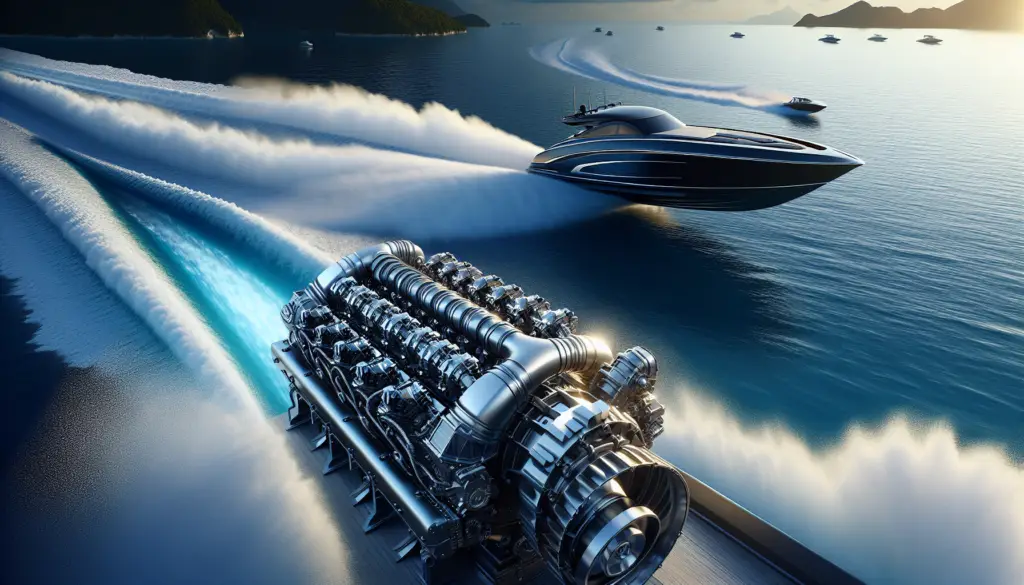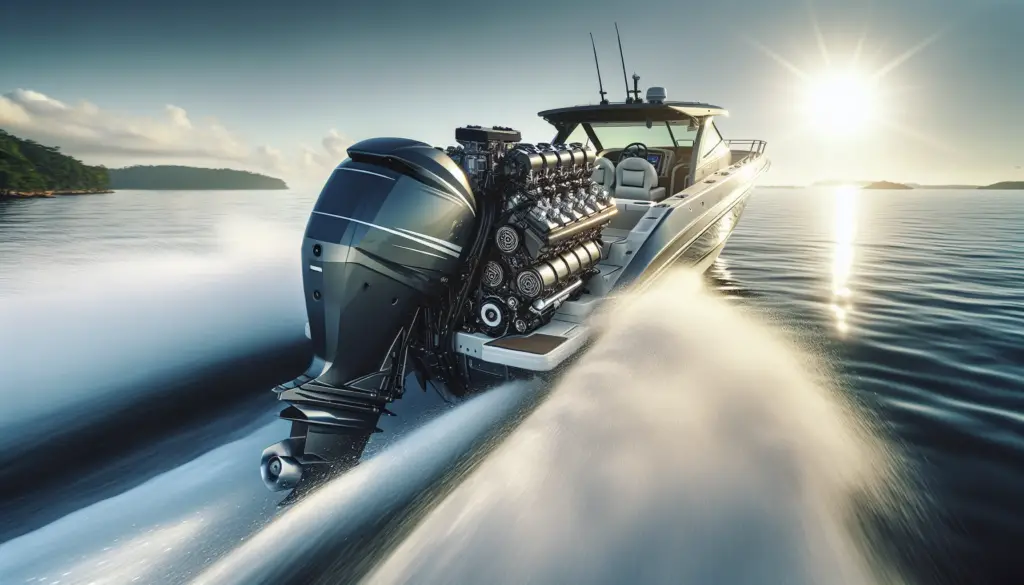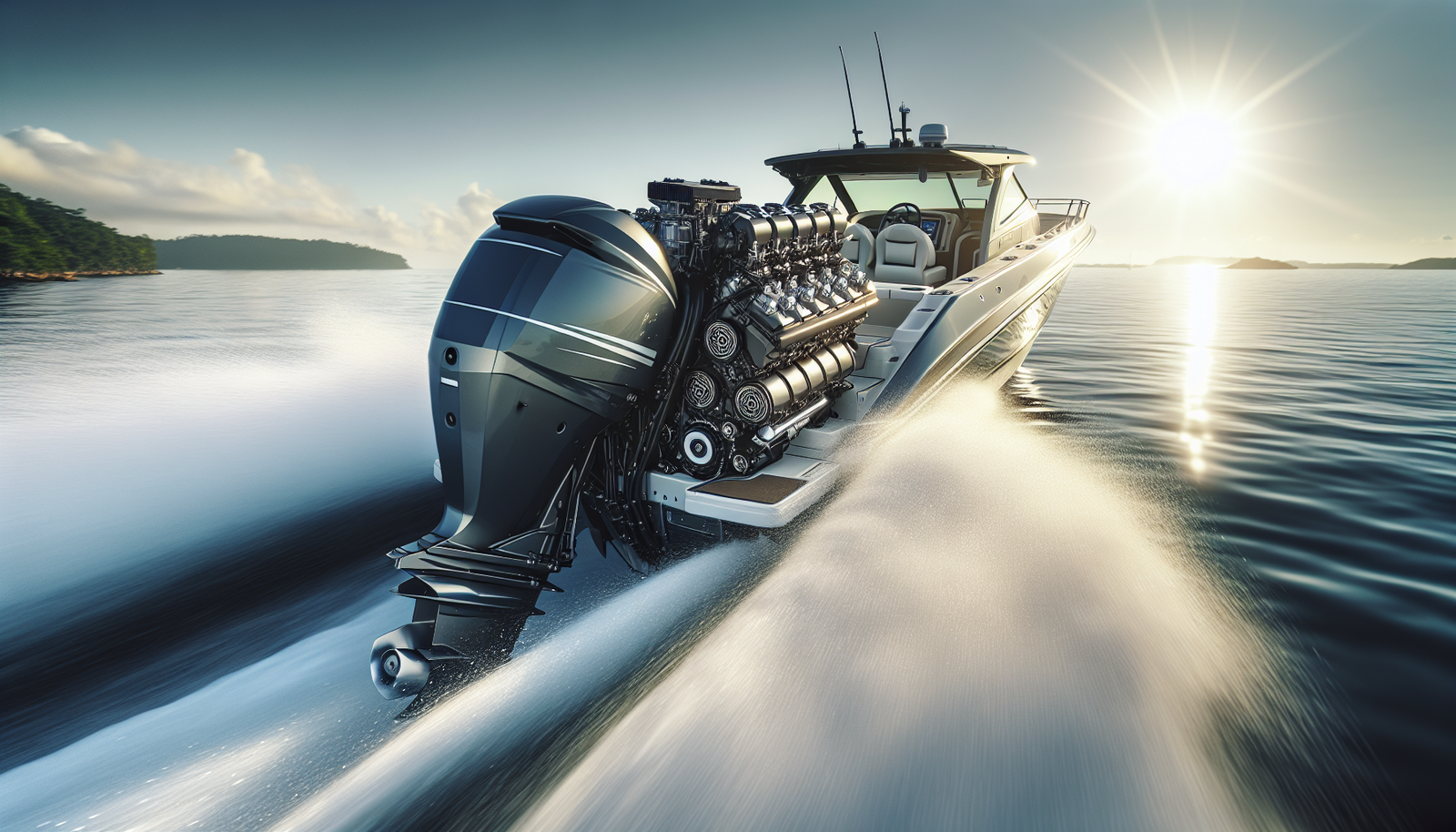Have you ever wondered why your boat engine heats up more when you’re cruising at higher speeds? Not to worry, you’re definitely not alone in this query. In this thorough exploration titled “Understand Boat Engine Overheating at High Speeds”, light will be shed on the vital mechanics and operations at play within your boat’s system, particularly when you’re gliding on the water at breakneck speeds. Sorted neatly into understandable sections, you can expect to navigate through the reasons and measures to combat the scientifically intriguing phenomenon of your boat engine overheating. By the end, you’ll be well equipped to handle your vessel expertly, even as you push the throttle. Safe sailing lies ahead, dear boat owner!

Understanding the Basics of Boat Engine Overheating
Boating, whether for recreational or commercial purposes, involves a lot of moving parts, one of which is your boat engine. And like any other engine, boat engines can overheat. An overheating boat engine is a problem you don’t want to ignore because if left unchecked, it can lead to significant engine damage.
Role of the Cooling System
The cooling system plays an essential role in maintaining an optimal temperature in your boat engine. It uses water or coolant to absorb heat from the engine and expel it through the exhaust system, ensuring the temperature remains under control. Without a properly functioning cooling system, your engine is at risk of overheating, especially when running at high speeds or under extreme conditions.
Impacts of Running at High Speeds
Running your boat at high speeds puts a lot of pressure on the engine. It forces the engine to work extra hard and run at higher revolutions per minute (RPM), resulting in increased engine temperatures. Without sufficient cooling, this extra heat can lead to overheating.
Signs of an Overheating Engine
Detecting an overheating engine early on can save you from costly engine repairs. The most common signs include an overly hot engine, steam from the engine compartment, unusual noises, reduced engine performance, and an illuminated temperature warning light.
Common Reasons for Overheating at High Speeds
There are several reasons why your boat engine might overheat when running at high speeds.
Ineffective Cooling System
An ineffective cooling system is a common cause of overheating. This could result from a failing water pump, a leak in the cooling system, or a clogged heat exchanger. These problems prevent the cooling system from adequately absorbing and dispelling heat, leading to increased engine temperatures.
Improper Lubrication
Engine oil plays a crucial role in cooling the engine. By lubricating the moving parts, it reduces friction, thus minimizing heat production. Low oil levels or poor-quality oil can compromise the engine’s lubrication, resulting in overheating.
Engine Running at High RPM
As mentioned earlier, running the engine at high RPM can lead to overheating. The higher the RPM, the harder your engine works, and the hotter it gets. If the cooling system can’t keep up with the heat generated, the engine temperature will rise, potentially to dangerous levels.
Blocked Exhaust System
Your exhaust system aids in cooling by expelling the hot gases from the engine. A blocked exhaust system prevents these gases from escaping, causing the engine temperature to rise and potentially leading to overheating.
Effects of Overheating on Boat Engine Performance
An overheated engine can have a serious impact on your boat’s performance.
Reduction in Engine Power
An overheated engine loses power, which translates into slower speeds and reduced performance. This happens because the heat affects the engine’s ability to create and control the explosion of fuel in the cylinders, which is vital for producing power.
Increased Fuel Consumption
When an engine is overheating, it becomes inefficient and consumes more fuel. This inefficiency is due to the engine having to work extra hard to compensate for the power loss resulting from the overheating condition.
Premature Wearing of Engine Parts
Overheating can lead to premature wear and tear of engine parts. High temperatures can cause the metal parts of the engine to expand and warp, leading to a potential decrease in engine life.

Examining the Cooling System
To prevent engine overheating, it’s important to regularly check your boat’s cooling system.
Importance of the Cooling System in Temperature Regulation
As stated earlier, the cooling system plays a significant role in regulating your boat engine’s temperature. By circulating coolant or water around the engine, it absorbs the heat generated, keeping the engine temperature within optimal limits.
Potential Faults in the Cooling System
Several things can go wrong with your cooling system, including leaks, worn out pumps, blocked tubes, and inefficient radiators. If any of these components fail, your cooling system won’t function properly, leading to potential overheating.
Detailed Inspection of the Cooling System Components
For this reason, it’s crucial to regularly inspect your cooling system components. Check for any leaks in the hoses and seals, ensure the water pump is working correctly, and confirm the radiator fins aren’t blocked. By doing so, you can catch any faults early and rectify them before they cause serious problems.
Diagnosing Problems with Lubrication
Besides the cooling system, proper lubrication is also critical in preventing overheating.
Significance of Oil in Engine Cooling
Engine oil provides a cooling effect by reducing friction and subsequently heat from the moving parts. It also absorbs some of the heat, carrying it away from the engine components.
Symptoms of Poor Lubrication
An engine suffering from poor lubrication will run hot and may exhibit signs of overheating. Other symptoms include increased engine noise and reduced performance.
Checking Oil Level and Quality
It’s advisable to check your oil level and the quality regularly. Ensure the oil level is per your engine manufacturer’s recommendations and the oil is in good condition. If the oil is dark, dirty or there’s less oil than required, it might be time for an oil change.
Detriments of Running Engine at High RPM
Running your engine at high RPM can have several negative impacts.
Understanding RPM and its Impact on Engine Temperature
RPM stands for revolutions per minute and signifies how many times the engine’s crankshaft spins around each minute. Higher RPM means the engine is working harder, generating more heat.
Risks Related to Prolonged High RPM
Prolonged exposure to high RPM can lead to excessive wear and tear on the engine components. It can lead to overheating, which in turn can cause significant engine damage if not addressed quickly.
Proper Management of Boat Speed and RPM
To avoid these risks, it’s important to manage your boat speed properly. Ideally, try to run your boat at a speed that allows the engine to operate at a safe RPM. Consult your engine’s manual for the preferred RPM range and stick to it to minimize the risk of overheating.
Identifying Blockages in the Exhaust System
A well-functioning exhaust system is critical for proper engine cooling.
Importance of Free-Flowing Exhaust System
The exhaust system carries away the hot gases generated by the engine, thus helping to cool it. If there’s a blockage in the exhaust system, these hot gases can’t escape, leading to increased engine temperature.
Common Signs of Blocked Exhaust
Signs that suggest a blocked exhaust system include reduced engine performance, unusual engine noise, increased engine temperature, and a burning smell from the engine compartment.
Clearing and Maintaining the Exhaust System
Monitor your exhaust system for any potential blockages. Regularly inspect the exhaust manifolds, water injection elbow and other elements for carbon build-up, corrosion or any form of restriction. Clearing the exhaust system and ensuring it’s well-maintained can go a long way in preventing overheating.
Preventive Measures against Overheating
There are several preventive measures you can take to prevent your boat engine from overheating.
Regular Maintenance of Cooling and Exhaust Systems
Regular maintenance of both your cooling and exhaust systems is vital. This includes checking the water pump, seals, impellers, and hoses in the cooling system, and inspecting the exhaust system for any signs of blockage or wear.
Proper Engine Operation
Operating your engine properly is also another preventive measure – avoid running the engine at high RPM for prolonged periods and ensure there’s proper lubrication by maintaining optimal oil quality and levels.
Correct Use of Boat at High Speeds
If you’re running your boat at high speeds, take care to ensure your engine doesn’t overheat. Allow your engine to warm up before you open the throttle, and always keep an eye on the temperature gauge.
Fixing an Overheating Engine
If despite your best efforts your engine overheats, it’s crucial to know how to fix it.
Troubleshooting Common Causes
Start by troubleshooting the common causes. Check the cooling system for leaks or blockages, check the oil levels and quality, and inspect the exhaust system. If it’s an issue you can fix, do so promptly to prevent further damage.
When to Seek Professional Help
Sometimes, the problem might be beyond your capabilities, and in such cases, you should seek professional help. Overheating can result from complex issues like blown head gaskets, cracked cylinder heads, or warped engines that require specialized equipment and expertise.
Long-term Solutions for Chronic Overheating
If your engine regularly overheats, it may be a good idea to look into long-term solutions. This might involve upgrading your cooling system, regularly servicing your engine, or even replacing the engine if it’s severely damaged.
Impact on Lifespan of the Boat
Repeated instances of overheating can shorten the lifespan of your boat’s engine.
Effects of Overheating on Boat’s Lifespan
Overheating causes parts of the engine to over-expand. It can lead to warping or cracking of components, or seizure of the engine. All of these problems can significantly reduce the engine’s lifespan.
Mitigation Strategies to Prolong Boat Engine Life
To prolong your boat engine’s life, take preventive measures against overheating, such as regular maintenance of the engine, proper operation, and using the boat correctly, especially at high speeds.
Importance of Regular Check-Ups and Maintenance
Regular check-ups and maintenance not only prevent problems like overheating but can also help to identify potential issues before they become major problems. By keeping your boat engine in good working condition, you can enjoy a longer, more efficient and trouble-free time on the water.
In conclusion, engine overheating is a challenge that boat owners should be aware of, especially while running at high speeds. By understanding the causes, impacts, and solutions, you can tackle overheating effectively and maintain your boat’s engine in good working condition for many years of great boating experiences.

